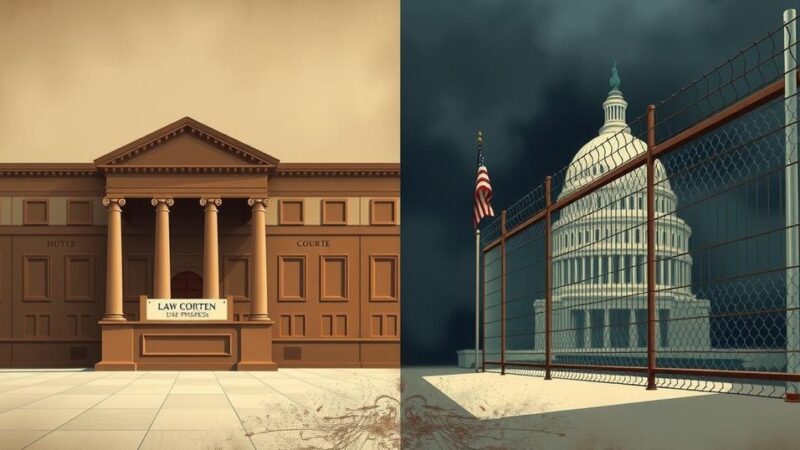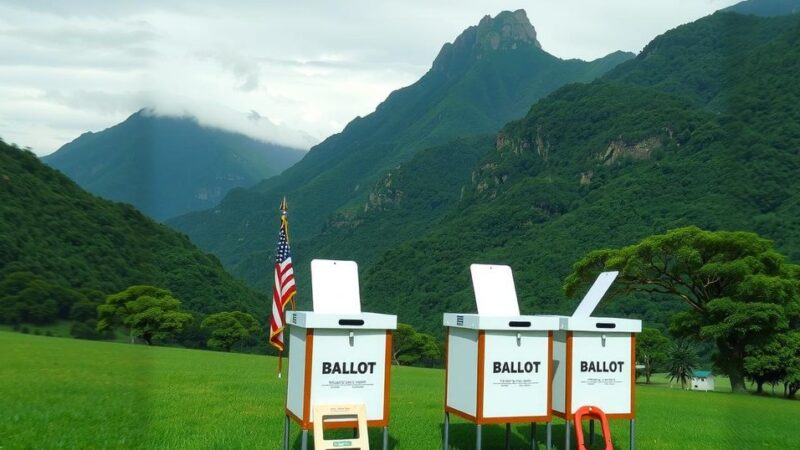Caribbean leaders express opposition to potential U.S. travel bans affecting several nations, citing a lack of formal notification. The proposed bans coincide with U.S. threats to cancel visas for officials involved in Cuban medical missions. Leaders seek clarification from the Trump administration and express their commitment to healthcare collaborations with Cuba despite these challenges.
Caribbean leaders are expressing their opposition to threats from the United States concerning a potential travel ban affecting several nations, stating they have received no formal communication from the Trump administration regarding this issue. The Miami Herald reported that Cuba and Venezuela would face total entry bans, while other Caribbean countries, including Haiti, would also be included in the list compiled by Trump adviser Stephen Miller. This proposal raises significant concerns among those with family members in the U.S., who may be barred from travel despite holding valid visas.
The proposed restrictions would severely limit access to the U.S. for various Caribbean nationals, including high-ranking government officials, which many in the region found surprising. Furthermore, these developments coincide with U.S. threats of visa cancellations for Caribbean officials involved with Cuban medical missions. Secretary of State Marco Rubio publicly announced that measures are being taken to revoke visas for individuals participating in these missions, which send health professionals to various countries, including those in the Caribbean.
During a recent press conference, Dominica’s Prime Minister Roosevelt Skerrit expressed his willingness to engage with U.S. authorities on these matters, underscoring that his government operates transparently. Skerrit confirmed that Dominica, along with Antigua, St. Kitts, and St. Lucia, would fall under the travel ban’s third tier, requiring them to address U.S. concerns within 60 days to restore travel access.
Antigua, Barbuda, and St. Kitts and Nevis submitted diplomatic notes to the State Department seeking confirmation and clarification about the proposed travel restrictions. Each of these nations is currently operating Citizenship By Investment Programs, which grant foreign nationals access to dual citizenship, raising concerns amid U.S. and European scrutiny over transparency in these programs.
The government of Antigua noted that their application process strictly excludes individuals from countries subjected to travel bans. The Prime Minister of St. Kitts highlighted ongoing dialogue with U.S. officials regarding reforms in their citizenship programs following discussions with representatives from the European Union.
Sources indicate that the countries placed on the third tier were scrutinized due to background checks and issues related to the repatriation of deportees. Furthermore, the proposed bans are seen as potential leverage in negotiations regarding the acceptance of U.S. deportees.
The looming travel ban adds pressure to Caribbean governments already contending with challenges related to deportations, U.S. policy concerning Haiti, and potential aid freezes. The State Department has claimed that Cuba’s medical missions amount to forced labor, a notion met with resistance from Caribbean leaders, asserting their engagement with Cuban medical professionals is legitimate and essential for public health.
Notable Caribbean leaders have shown solidarity in defense of the Cuban medical program despite threats to their own visa status in the U.S. Prime Minister Philip Davis of The Bahamas asserted that the government conducts thorough checks before employing Cuban medical staff, while Barbados Prime Minister Mia Mottley stated her commitment to oppose misconceptions regarding human trafficking linked to these medical missions. Mottley indicated she is prepared to sacrifice her U.S. visa to uphold principles surrounding healthcare in the region.
Prime Minister Davis echoed Mottley’s sentiments, affirming his intent to prioritize the interests of the Bahamian populace and act cooperatively in response to U.S. requests, even if that leads to unfavorable outcomes regarding travel to the U.S.
In summary, Caribbean leaders are collectively voicing their opposition to the potential U.S. travel ban that may affect several nations, emphasizing the absence of formal communication from the Trump administration. Concerns have escalated over visa cancellations related to the employment of Cuban medical professionals, leading to diplomatic efforts seeking clarity from the U.S. government. Despite these challenges, leaders demonstrate a commitment to health partnerships with Cuba, prioritizing regional healthcare imperatives over potential loss of U.S. access.
Original Source: www.miamiherald.com






